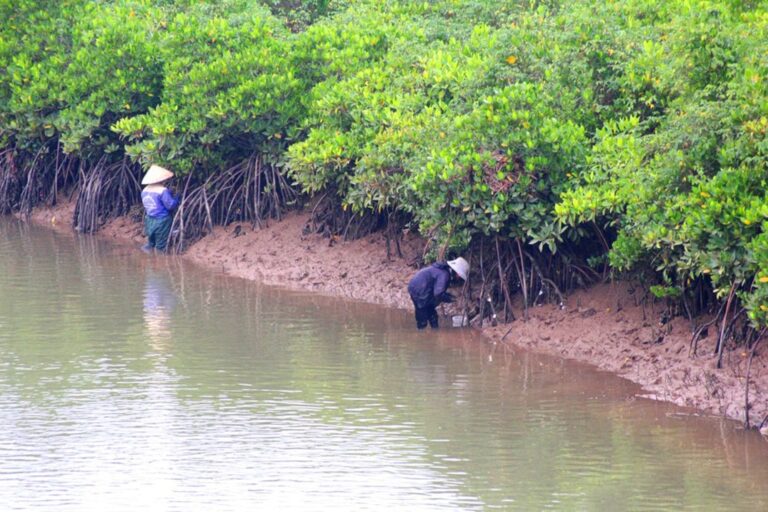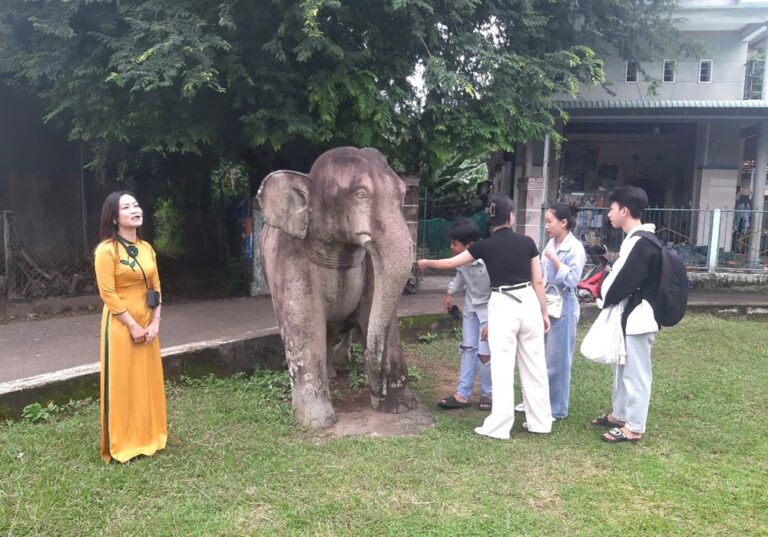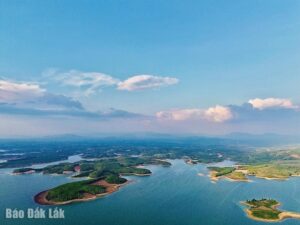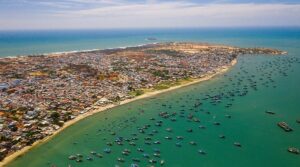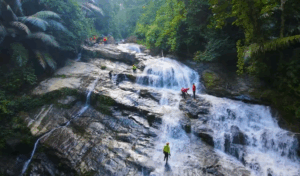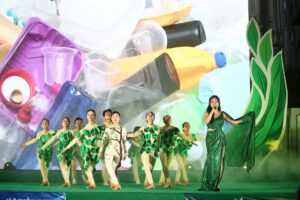With its shimmering, blue ocean, white sandy beaches, grand hotels and tourist friendly resorts, including Hon Ngoc Viet (VinPearl), Hon Tre (Bamboo Island), Hon Tam (Silkworm Island) and the Hot Spa Tourism Centre, the southern city of Nha Trang in Khanh Hoa province is a Mecca for tourists in Vietnam.
In addition to all these modern attractions, visitors to the area also have the opportunity to step back in time and explore relics from the ancient kingdom of Champa, most notably the unique Po Nagar (Thap Ba) Temple tower.
Po Nagar is the biggest tower in an architectural complex comprising four temple towers that were built and upgraded several times from the 7th and 12th centuries. The Po Nagar tower was constructed between 813 and 817. It is a square, two storey-tall, red brick tower with numerous tiers and levels built on a hill outside the city facing east towards the sea. The bricks are laid so tightly together that the mortar is almost invisible. Visitors climb up many stairs to the upper level of the hill where four towers are situated in a square.
The outside of the Po Nagar tower appears quite ornate with many pilasters, carvings and tiers of miniature towers on the temple roof. The main part of the tower has decorative elements such as bas-reliefs and terra-cotta statues symbolizing the goddess Po Nagar and the God Tenexa, as well as fairies and animals such as deer, golden geese, lions, etc. The main tower is dedicated to the wife of the god Shiva called Yan Po Nagar, who was the goddess of the country.
The Po Nagar Tower has four vertical levels, each with an entrance and miniature towers at the four corners. Inside the temple, there is a 2.6 metre tall statue of the Goddess made from black granite sitting on a lotus-shaped stone base and leaning against a large stone plate shaped like a fig leaf. This statue is considered a masterpiece of Cham sculpture; the perfect balance between carving, polishing and embossing techniques.
The other three towers on the top of the hill are dedicated to the Indian supreme God Shiva and his two sons, Sanhaca and Ganeca.
The Thap Ba (Po Nagar) Festival is held annually from March 20th to the 23rd in the lunar calendar to praise the Goddess who built up the land, kept the Cham race alive, discovered rice and taught the people how to farm and make handicrafts.
There are two parts to the festival, a sacred ceremony and other festive activities.
The ceremony begins with "changing the robes" of the Goddess, which invlolves bathing her with perfumed water and dressing her in new garments. This is followed by a solemn ritual, praising the merits of the Mother Goddess and praying for peace, happiness and prosperity.
Afterwards, there is dancing, singing, and performances acting out the old stories and legends in front of the main tower. The beautiful Cham girls in the tower's mystical bas-reliefs seem to come to life swaying, their charming slender bodies and waving their sun-tanned arms to invite visitors back to the time of the original, flourishing kingdom of Champa.


